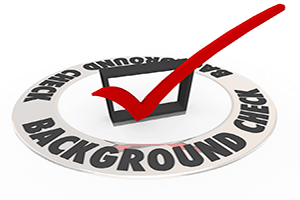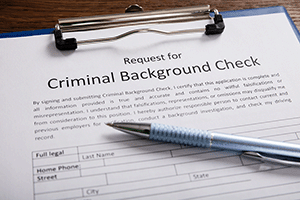Georgia Background Checks
In today’s interconnected world, background checks have become a useful tool for many aspects of society. Whether you're an vetting a neighbor or co-worker, or curious about someone you know, a Georgia background check can provide helpful insights and raise important red-flags if they have a criminal past. There are however different types of background checks that can be used for different reasons. This article explores how to run these different types of checks, the types of records you can uncover, and what they can be used for. We'll also examine different privacy restrictions on some records and what information is publicly accessible.
How to Run a Georgia Criminal Background Check
Running a criminal background check requires an understanding of state-specific guidelines. Georgia law allows both individuals and authorized agencies to access criminal records, but the process differs slightly depending on who’s requesting the information. We will show you how to access official GA criminal background checks for employment applications, and security clearances, to the unofficial checks that can be run by anyone for any reason. Here is a breakdown of the various ways to run these types of reports.
1). Official State Resources: The state run agency, the GA Bureau of Investigation (GBI), allows anyone to search for felony convictions and criminal history records for official purposes. This service is primarily intended for people to run their own criminal history reports, as identity verification is a requirement.. This service is the fastest and easiest method to run an official search for felony criminal convictions.
2). Law Enforcment Resources: Some county sheriff’s offices and police departments offer official criminal history reporting services. These checks are often limited to the county or jurisdiction in which they are run, so they may not provide a comprehensive statewide report. For example, the Atlanta Police Department offers official Atlanta Criminal Background Checks for a fee. These services are primarily used for those entering a new job, or are required to get a security clearance and needs this to do so. You will need to visit an office in person to have your fingerprints taken and identity verified to run this type of check.
3). Third-party services: Several private companies offer criminal background checks. However, it’s essential to ensure the service is compliant with the Fair Credit Reporting Act (FCRA) to avoid legal pitfalls. Many other third party resources offer access to un-certified criminal history reports which do not require the stringent requirements of official records. Anyone can run an unofficial criminal history search, as these are considered public records that do not require permission to research and reference online.

Types of Criminal Records Available in a Georgia Background Check
Looking up someone's criminal history can yield a variety of records, offering a snapshot of a person's criminal convictions and pending criminal charges. Depending on the source of the check and the type requested, the following criminal records may be available:
1). Felony Convictions: Georgia Felon Search provides details about any felony convictions, including the type of felony and sentencing.
2). Misdemeanor Convictions: While less severe than felonies, misdemeanors are still included in many background reports.
3). Arrest Records: These may show any arrests that have not necessarily led to convictions. However, arrests without convictions cannot always be used in employment decisions.
4). Pending Charges: Any ongoing criminal cases or unresolved legal proceedings. This means that while these are pending criminal records, they are not convictions and still allegations of a crime.
5). Active Warrants: Arrests warrants specifically, are allegations of a criminal act where someone is wanted by the courts and law enforcment to stand trial.
6). Incarceration Records: Details about prison sentences served, including the facility and release date.
7). Sex Offender Registry: Information about individuals registered as sex offenders within Georgia.
5). Driving Records: These records include driver abstracts, driving record points, traffic citations and DUIs
The Importance of Being able to Lookup Someone's Background
Looking up someone's public records are an integral part of safeguarding trust in various sectors of society. They serve as a preventative measure to protect people and institutions from potential harm, fraud, or liability. These can be used for both personal and professional reasons. Whether you want to know if someone was previously married or spent time in prison, these records will show you everything. Here are some of the popular utilities for accessing a person's public records history.
Employment: Employers frequently use background checks to verify that prospective employees do not have a criminal history that might pose a risk to the workplace or customers. This is particularly important in sensitive industries, such as education, healthcare, and childcare.
Housing: Landlords and property managers often conduct background checks to ensure potential tenants do not have a history of criminal behavior that might threaten the safety of other tenants or property.
Public Safety: Government agencies and law enforcement use background checks to vet applicants for public sector jobs, ensuring that those in positions of power and responsibility are free from criminal histories.
Firearm Purchases: In Georgia, background checks are required to prevent individuals with felony convictions or certain mental health issues from purchasing firearms.
Privacy Concerns and Legal Restrictions
While looking up someone's criminal past or vial records, they do raise some important privacy concerns. Both federal and Georgia state laws place restrictions on the use and dissemination of background information to protect individuals’ rights. Official checks will require written permission and various forms of identity verification, where unofficial checks are less stringent and often do not require any authorization as they are not used for official reasons. For Example, The Fair Credit Reporting Act (FCRA) governs how background checks can be conducted for employment purposes. Under the FCRA, an employer must obtain written consent and disclose their findings to the applicant. This is because


